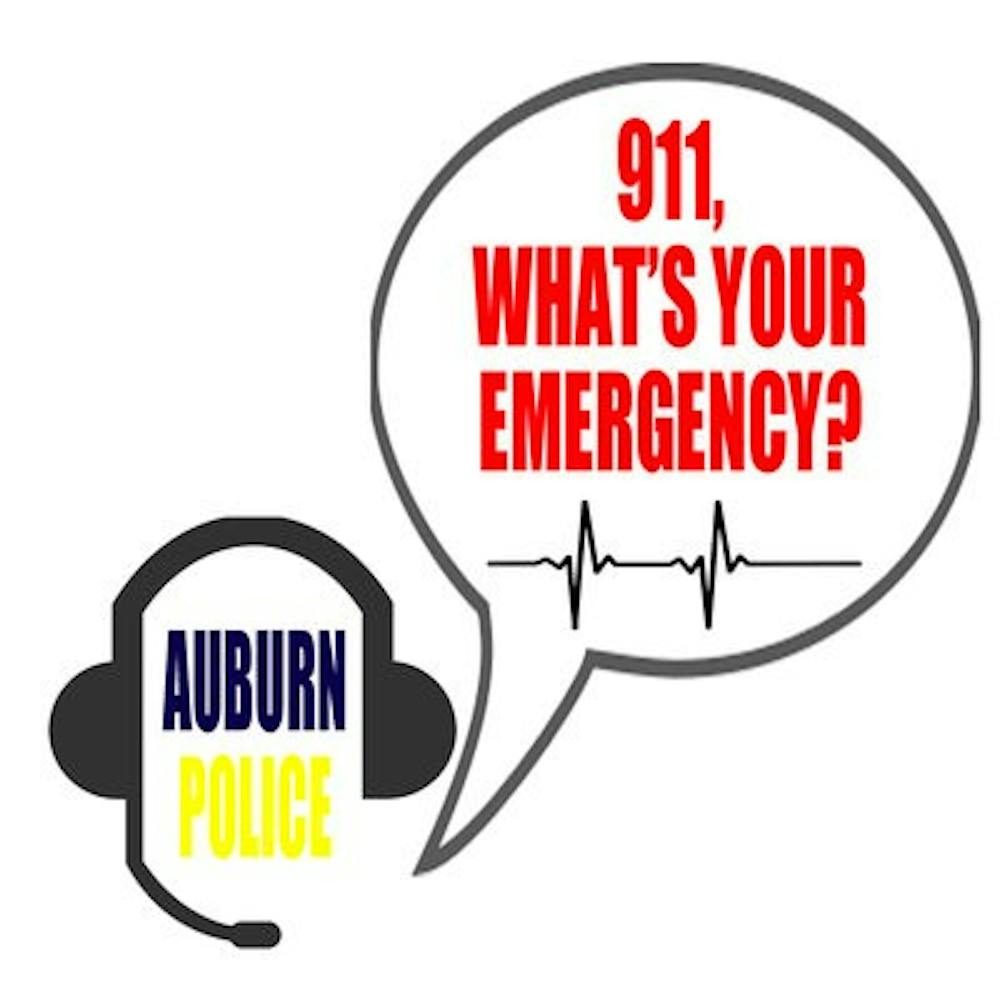Five computer screens provide a backdrop as Auburn communications dispatchers take calls from the public and police. Responding to an officer on a traffic stop, the dispatcher types in the driver's license information and says there are no warrants or criminal history.
The officer replies with a 10-8, meaning he will go back to patrolling, and the dispatcher continues to monitor police activity through radio communications and GPS tracking.
The communications division is responsible for running the 911 center, which includes dispatching all police and fire rescue.
All full-time personnel work 12-hour shifts over a period of three and a half days, the final day being six hours.
"This job is very demanding with my family," said Doug Glover, communications supervisor. "My days just happened to fall on Thanksgiving, Christmas and New Year's, so we all got together early. They understand the importance of my job."
The division receives approximately 400 calls per day. Of those calls, 75 percent come from cell phones. The decrease in landline use has made it both easier and more difficult for 911 dispatchers, according to Adam Brown, emergency communications administrator.
"GPS tracking is a great thing," Brown said. "However, (GPS tracking) is not to the point that people think it is, and sometimes tracking can be hard. The single most important thing we need to know in order to help someone is their location."
Some people abuse the 911 system by calling for non-emergency reasons, according to Glover, who said he has received some strange calls during his time in the division.
"One time in particular, a guy called me and said that he ran out of beer and needed someone to get him some more," Glover said. "When I explained to him this was an emergency line, he said, 'This is an emergency.'"
Glover said he is not the first to receive a non-emergency case. Some people call just to have someone to talk to. There are occasional pranks, and every now and then, someone might try to sing, but each call is handled on a case-by-case basis, according to Brown.
While some calls may be tedious, he said the division has dealt with robberies in progress and assaults with deadly weapons.
"Someone who is no longer employed with us spoke with a murder victim," Brown said. "He ended up passing while he was on the phone. Stuff like that is hard to deal with."
Keeping a caller calm is another part of being an emergency dispatcher. Though it is not always easy to do, Glover said one thing he learned from his trainer was that he is talking to people on the worst day of their life, and sometimes there is no calming the individual down.
"You can sit down in a classroom and learn all you want to, but nothing will substitute actually taking the calls and learning how to read people over the phone," Glover said. "We've had people go upward into 400 hours of training."
The division has 16 employees and a dispatcher will handle multiple calls at any time. It's all about prioritizing, according to Brown.
"You call 911 and you're never going to get a busy signal," Brown said.
Each dispatcher follows a line of questioning distinct to each call to become as well informed as possible.
"When you talk to people, sometimes they want to know why you are asking so many questions, and they can get frustrated," Glover said. "But our concern is the caller's safety and the safety of any emergency personnel arriving on the scene."
After business hours, the division serves as the main contact for all other city services, such as public works, water, sewer and traffic light division.
Non-emergencies should call 334-501-3100. In the case of an emergency, however, call 911.
"The communications division is vital to what we do," said Capt. Cedric Anderson of the Auburn Police Division.
Do you like this story? The Plainsman doesn't accept money from tuition or student fees, and we don't charge a subscription fee. But you can donate to support The Plainsman.





